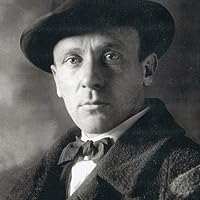Pontius Pilate Quotes
Quotes tagged as "pontius-pilate"
Showing 1-7 of 7

“Pilate's skeptical sneer "What is truth?" was addressed to Truth Himself, standing there right in front of his face. The world's stupidest question was three words; God's profoundest answer was one Word.”
― Jesus-Shock
― Jesus-Shock

“The Romans may be known for many things, but humor isn't one of them. As usual, this interpretation relies on a prima facie reading of Jesus as a man with no political ambitions whatsoever. That is nonsense. All criminals sentenced to execution received a titulus so that everyone know the crime for which they were being punished and thus be deterred from taking part in similar activity. That the wording on Jesus's titulus was likely genuine is demonstrated by Joseph A. Fitzmeyer, who notes that "if [the titulus] were invented by Christians, they would have used Christos, for early Christians would scarcely have called their Lord 'King of the Jews'."[..] the notion that a no-name Jewish peasant would have received a personal audience with the Roman governor, Pontius Pilate, who had probably signed a dozen execution orders that day alone, is so outlandish that it cannot be taken seriously.”
― Zealot: The Life and Times of Jesus of Nazareth
― Zealot: The Life and Times of Jesus of Nazareth

“Negrįžtamai pasitraukė, sekmadienio naktį gavęs atleidimą, karaliaus –
žvaigždininko sūnus, žiaurus penktasis Judėjos prokuratorius raitelis Poncijus Pilotas”
― The Master and Margarita
žvaigždininko sūnus, žiaurus penktasis Judėjos prokuratorius raitelis Poncijus Pilotas”
― The Master and Margarita
“The most important moment in religious history was when Pontius Pilate asked Jesus Christ, “What is truth?” This was the ideal opportunity for “God” to finally explain reality and truth to humanity. What, then, was Christ’s answer? Er, nothing. That dreadful silence reveals everything about mainstream religion and its inability to explain anything.”
― All the Rest is Propaganda
― All the Rest is Propaganda
“[Pilate] washed his hands when he should have exerted them.”
― The Life of Jesus Christ: A Biographical Overview of the Life of Christ
― The Life of Jesus Christ: A Biographical Overview of the Life of Christ
“Pilate had perfected the political art of compromise.”
― The Life of Jesus Christ: A Biographical Overview of the Life of Christ
― The Life of Jesus Christ: A Biographical Overview of the Life of Christ
“I decided that to get at the historical Jesus, one should perhaps start by looking at his background: his parents, his family, the places of his birth and life. The Gospels, of course, contained a lot of that stuff, though they didn’t always agree. But one couldn’t prove the validity of the Gospel story by appealing to the Gospel story. But here was the problem I encountered. Using the Muratorian Project Index and my own search of the non-canonical material I had entered, I could find no references to the names of Mary and Joseph, nor to Bethlehem, Nazareth or Galilee, anywhere in the non-Gospel documents of the first century. I decided to look up the name of the man who one might say was the most crucial in Jesus’ life, namely, the man who had tried and executed him: the Roman governor, Pontius Pilate. In the epistles, he appeared only in a single passing reference in 1 Timothy 6:13, at my date of 115. Elsewhere, in all the discussions about Christ’s death and crucifixion, he was nowhere to be found. I could not even locate a reference in Paul or any other epistle writer to the fact that Jesus had undergone a trial! Little did Pilate realize when he washed his hands, that he was washing himself out of the wider Christian record for about 80 years!”
― The Jesus Puzzle: Did Christianity Begin with a Mythical Christ? Challenging the Existence of an Historical Jesus
― The Jesus Puzzle: Did Christianity Begin with a Mythical Christ? Challenging the Existence of an Historical Jesus
All Quotes
|
My Quotes
|
Add A Quote
Browse By Tag
- Love Quotes 97.5k
- Life Quotes 76k
- Inspirational Quotes 73k
- Humor Quotes 43.5k
- Philosophy Quotes 29.5k
- Inspirational Quotes Quotes 27k
- God Quotes 26k
- Truth Quotes 23.5k
- Wisdom Quotes 23.5k
- Romance Quotes 23k
- Poetry Quotes 22k
- Death Quotes 20k
- Happiness Quotes 18.5k
- Life Lessons Quotes 18.5k
- Hope Quotes 18k
- Faith Quotes 18k
- Quotes Quotes 16.5k
- Inspiration Quotes 16.5k
- Spirituality Quotes 15k
- Religion Quotes 15k
- Motivational Quotes 15k
- Writing Quotes 15k
- Relationships Quotes 14.5k
- Life Quotes Quotes 14k
- Love Quotes Quotes 14k
- Success Quotes 13.5k
- Time Quotes 12.5k
- Motivation Quotes 12k
- Science Quotes 11.5k
- Motivational Quotes Quotes 11.5k

